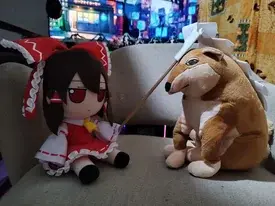Fd up the English flag!!!
Webster > Oxford, end of discussion
Not japanese, but my understanding is that japanese uses a lot of honorifics and their pronouns use them too. So you don’t just say “I” but “I, a humble servant,” or “I, an esteemed gentleman,” or “I, the owner of this establishment,”
Yes, along with changing their word choice and grammar to fit the situation as well - informal vs formal, personal vs polite, business vs political, elder vs youth, male vs female, etc.
Yeah, from my basic understanding of language, it seems like Japanese is a far denser language that something like English. I’ve heard that people are able to indicate tone and other such things in a way that’s just kinda built into the language, whereas with English or similar languages it would require extra sentences that seem awkward
I, poster of this comment, have posted this comment.
Why are there so many, is 私 (わたし) not enough?
There are a lot in theory but in practice most of the ones in this picture aren’t used, especially not all by one person.
Each person generally can have up to 2/3 pronouns they use. One for acquaintances (and the one you use most of the time), one for strangers where you need to be a bit more formal and then possibly one for when you’re speaking to someone in a higher position. Outside of that, only very specific scenarios would require a different pronoun.
Andd for example if you use “watashi” with acquaintances, that one’s also valid in many formal scenarios so you wouldn’t need a separate one for that, you’d only need a more formal one like “watakushi” when speaking to someone in a high position. So all in all it’s really not that complicated.
Ok so わたし is formal and わたくし is very formal.
Can you give me please an example for an informal “I”?
ぼく, おれ or あたし are pretty good examples of informal ones. You’d only use those with acquaintances pretty much.
Note わたし isn’t specifically formal per se, it’s just very neutral so it works in a lot of formal contexts too.
For very stilted, academic, formal conversation, it is, but for conversation with social superiors, social inferiors, peers, friends, family, in a business setting, a political setting, or any number of other social situations, you start using a lot of other first person pronouns instead, especially distinguishing male from female, childish from elderly, etc.





